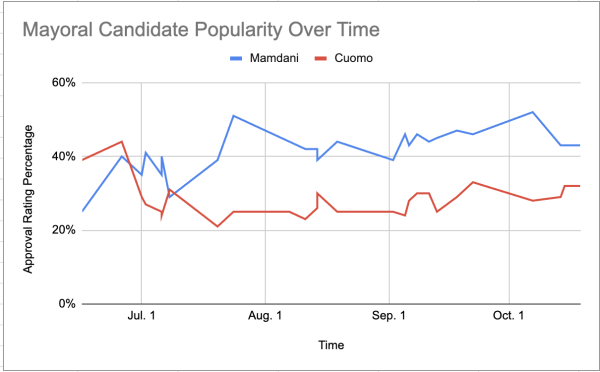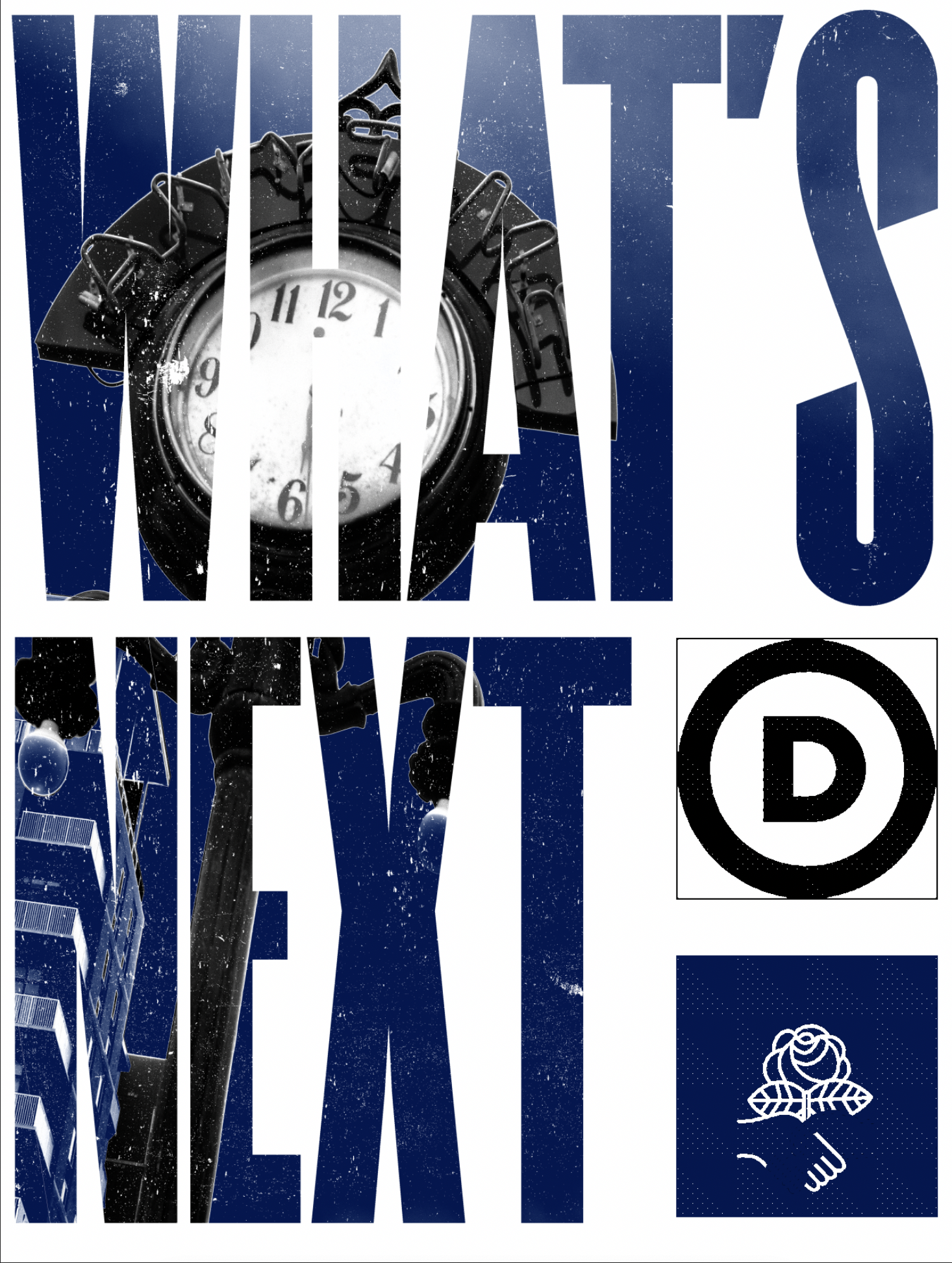As the nation enters another crisis under Trump’s second government shutdown, entropy yet again grips the country. Since 1981, the federal government has ground to a halt only five times. However, this latest crisis, now at 27 days, has the potential to last longer than the president’s former record of 35 days. Throughout this process, vital services across the US will be paralyzed, leaving millions uncertain about their pay, Medicare, and Social Security. This shutdown has coincided with the advent of a second No Kings protest, a mass demonstration condemning Republican authoritarianism. Evidently, though, the Democratic sponsors of this event have very little to say when it comes to legitimate changes and demands that the American people need from the Trump administration. Amid this complacency, the truth has become undeniable: the Democratic Party’s identity crisis has reached a breaking point.
former record of 35 days. Throughout this process, vital services across the US will be paralyzed, leaving millions uncertain about their pay, Medicare, and Social Security. This shutdown has coincided with the advent of a second No Kings protest, a mass demonstration condemning Republican authoritarianism. Evidently, though, the Democratic sponsors of this event have very little to say when it comes to legitimate changes and demands that the American people need from the Trump administration. Amid this complacency, the truth has become undeniable: the Democratic Party’s identity crisis has reached a breaking point.
Although voters are mainly placing the blame upon Republicans, the government shutdown seems to be the only backlash the Democratic Party has been able to escape. As of October 28th, the Democratic Party’s approval rating is at an impressively low 34.7%. This wave of discontent with the Democrats has been the result of an electoral cycle littered with stubborn, old, and seemingly incompetent leadership. Harris absolutely refused to budge on stopping the genocide in Gaza; Senate minority leader, Chuck Schumer, suggested that Democrats resist Trump by writing “strongly worded letters”, and Biden stepped down from the race with less than four months until the election. Democrats act as if they have already accepted defeat, as if losing to Trump and his cronies was inevitable. So rather than making an effort to defend democracy, they salvage what money can be made. They solely focus on appeasing sponsors, as if that is preferable to defeating fascism. The party, which once at least tried to sell itself as morally sound, is just a hollow brand running on excuses and self-promotion.
Despite the Democrat’s recent unpopularity, Trump’s approval ratings have remained equally abysmal; voters are completely resentful of both sides of the aisle. The American people are begging for change across the board, and with three more years of Trump in sight, the Democrats are the only Party that has the privilege to pivot leadership. To do that, though, they must desert their corporate masters, PACs, and sponsors. Instead, they need to satisfy their true voter base: the working class.
Advocates for the proletariat like Bernie Sanders, Omar Fateh, and Zohran Mamdani have exemplified this sentiment. All of them have advocated for policies like healthcare, rent control, and expanding education, and, as such, have seen significant popularity hikes within recent months.
Bernie Sanders remains the keystone of America’s Democratic socialist movement. His unwavering advocacy for Medicare for All, tuition-free public college, and a Green New Deal has earned the Senator sixteen years in his seat for Vermont, including a comical 63% to 32% win against Republican opponent Gerald Malloy in 2024. His beliefs have captured public attention through years of Democratic primaries and economic hardship, but he has yet again surged amid deepening political disillusionment. His message is one that every day Americans, regardless of their position on the political spectrum, are beginning to take to heart: the billionaire class should not control the political process. As Sanders continues to be a champion for this ideology, he will continue to resonate with voters across the country and its generations.
Omar Fateh has carried similar energy into state politics, emphasizing the betterment of workers’ lives and rights throughout Minneapolis. Already a senator for Minnesota, Fateh’s policies, like establishing a minimum wage for Uber/Lyft drivers, have boosted his popularity in the mayoral race. Youssef Omar, an Uber driver, stated: “‘What stands out most about Omar’s leadership is his courage to take on powerful corporate interests. He stood firm against those who sought to undervalue our drivers’”. Evidently, it is Fateh’s unique willingness to stand up against big business that has led to his meteoric rise within the Democrats; the working class is starved of a candidate who is willing to actively combat the injustices imposed by corporations.
Primarily, though, Zohran Mamdani has cemented his status as the poster child for the new age of Democratic leadership. He has experienced an explosive campaign in his run for New York City Mayor; when his campaign began, he trailed Andrew Cuomo by fourteen points, a margin that, in polling terms, means millions of potential votes. Yet, in just four months, he is now leading Cuomo by 24 points, a swing of nearly 40% of polled voters. His incredible growth can be attributed to the public’s hunger for tangible, working-class solutions: his steadfast stance on healthcare, promising to create free public transit, and creating a network of city-run and owned grocery stores have reshaped voters’ expectations of the Democratic platform. These proposals, all hallmarks of Democratic socialism, show that the ideology isn’t the threat it’s often portrayed to be. Instead, it’s proving to be the foundation of a new wave of political momentum.

Democrats have long been stuck at a crossroads in leadership. Establishment politics like bipartisanship and cooperation across the aisle no longer resonate with voters, especially as the Republican Party strays further toward nationalism by the day. The internal tug-of-war between Democrats pushing for leftist reforms and those clinging to centrist politics has begun to tear at the very fabric of the Party.
This struggle exemplifies the Party’s struggle since its inception. It has hidden behind the illusions of pragmatism and compromise, mistaking cooperation for courage and rhetoric for reform. But as the nation fractures under Trump’s chaos, the Party has finally been faced with a crisis it can’t find a middle ground with. Although poor Republican leadership began the government shutdown, it is the Democratic Party’s refusal to compromise on medicare funding that has prolonged its impacts. Their refusal, though, could ensure that the 71.4 million Americans who rely on Medicare keep the coverage they depend on. This defiance marks an extremely rare moment of clarity for the Democrats: a recognition that appeasement has only eroded their supporters’ faith in the Party. To truly reclaim legitimacy, though, they must build on their momentum; transform what little resistance they display into true reform. That reform means expanding the Party beyond its aging circle of leadership, extending a platform to figureheads like Sanders, Fateh, and Mamdani, and understanding that decency without action is a moral theater. Although the fight for Medicare funding is yet to be secured, it signals something larger: a growing awareness that politics, and the future of the Democratic Party, will not be found on stage or at donor dinners, but in the union halls and neighborhoods that have been forgotten by America’s leaders.
Whether the Party will choose to meet this reality is still up in the air. Despite winning the Democratic primary in June, Mamdani has yet to be endorsed by significant Democratic leaders like Chuck Schumer and Hakeem Jeffries. If people like them continue to steer the Party, prioritizing profit over the people, then its collapse may be inevitable. However, the success of Democratic socialists across the country has underscored that this is no longer a fringe ideology. It represents a thread capable of sewing the torn fabric of the Democratic Party Democratic Party has the power to reshape the Democrats into a relevant, principled group, capable of finally enacting real change.










![A Vest Won’t Protect You [OPINION]](https://ghschronicle.com/wp-content/uploads/2025/09/KoltonZuckerVestPosterOffWhite.png)
![Executive Order: Ending Radical Indoctrination in K-12 Schooling [OPINION]](https://ghschronicle.com/wp-content/uploads/2025/04/Screenshot-2025-04-23-at-2.51.41 PM-1200x674.png)



